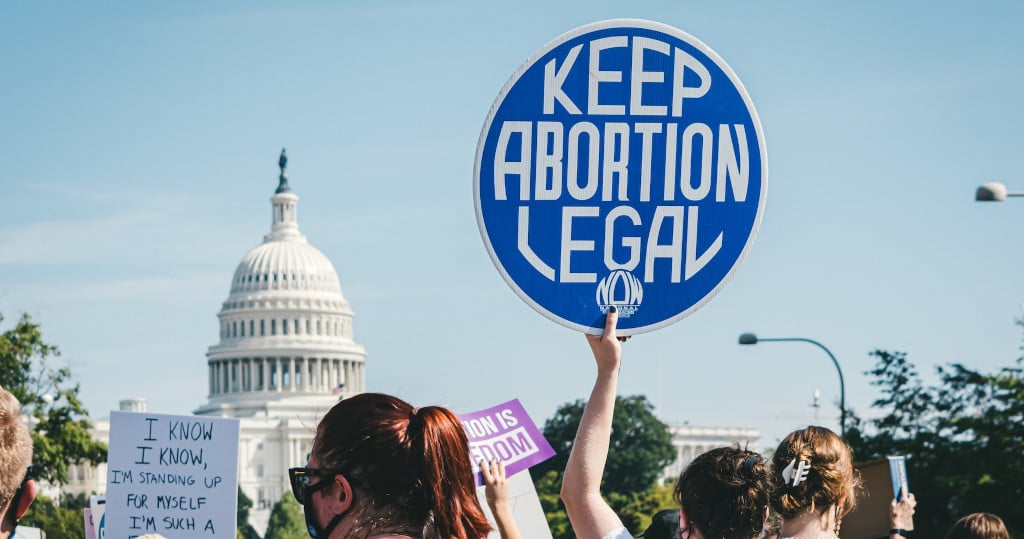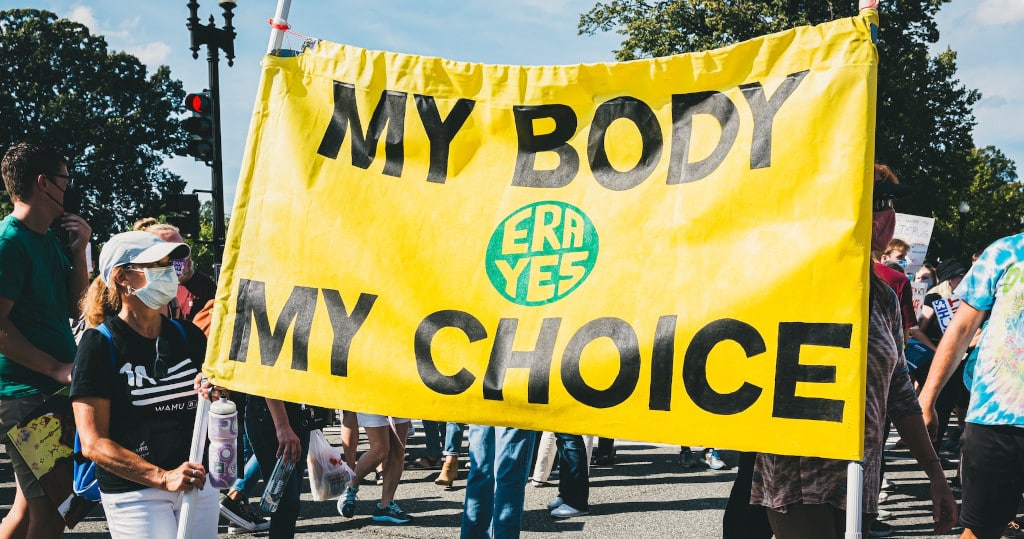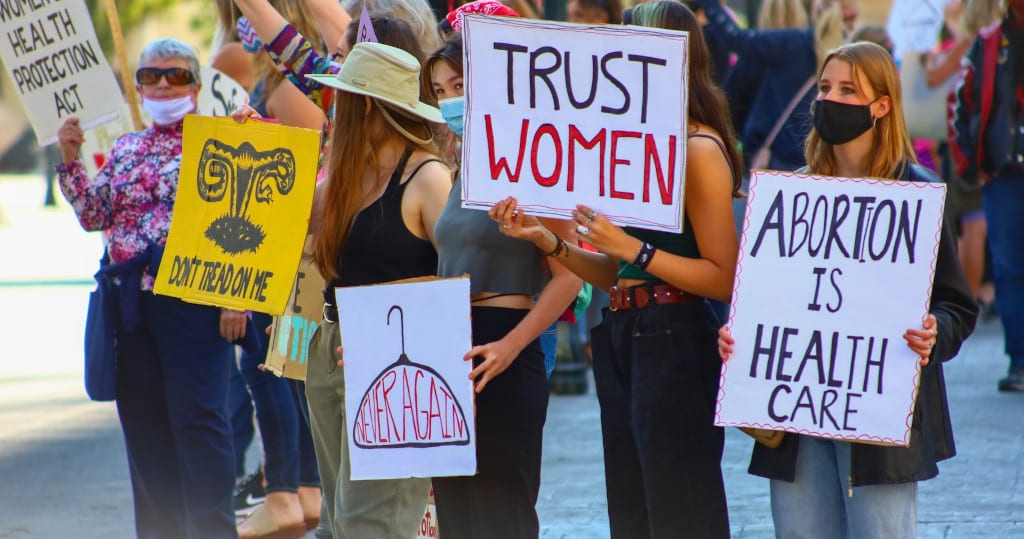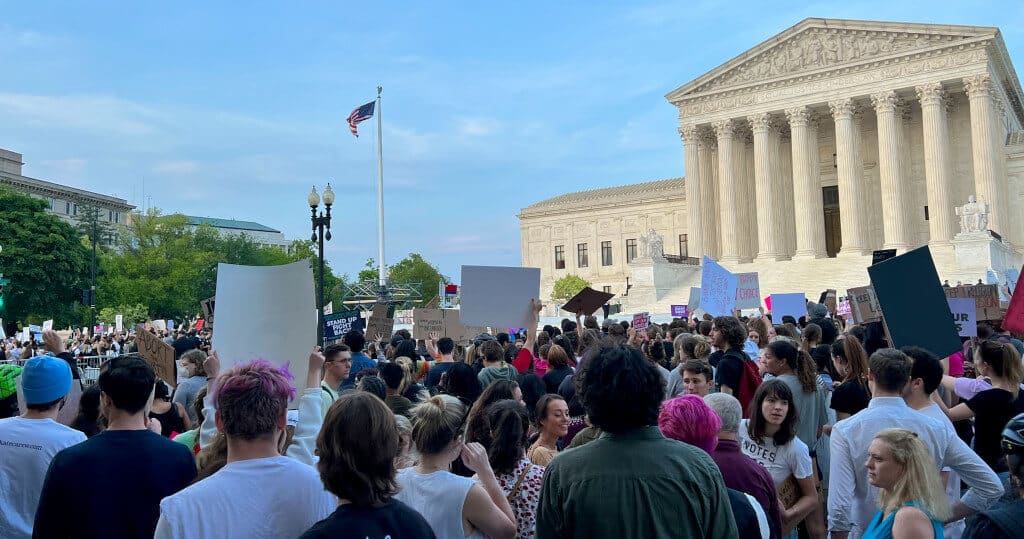Table of Contents
ToggleIf you looked back over reporting on Roe v. Wade in the media, you would see the words “abortion ban” following the United States Supreme Court’s decision to overturn Roe v. Wade (1973).
That legislation made access to abortion a federal right in the United States. After being overturned, the decision to ban or limit abortion access was returned to the states.
How Has This Decision Affected Abortion Rights?
Some states have decided to restrict abortion access, while others continue to protect abortion rights. Thirteen states have already implemented “trigger” laws whereby abortion will be banned in some instances.

For example, in Mississippi, the court upheld the law prohibiting termination after 15 weeks of pregnancy on June 24th, 2022.

Get Smarter on US News, History, and the Constitution
Join the thousands of fellow patriots who rely on our 5-minute newsletter to stay informed on the key events and trends that shaped our nation's past and continue to shape its present.
Numerous Republican states have since passed laws to ban abortion at different gestation stages. Since the change in law, Indiana was the first state to authorize new abortion restrictions.
With the governor’s signature, state lawmakers passed a near-total termination ban, making exceptions for incest and rape, and protecting the mother’s life.

On the other hand, Democratic-led states are doing all they can to preserve abortion access as enshrined in their constitutions. Nine states have acknowledged the right to abortion and will do all they can to ensure legal abortion remains despite the decision to overturn Roe v Wade.
What Are “Trigger” Laws?
Thirteen states have implemented “trigger” laws to restrict abortion access.
These states are Arkansas, North Dakota, South Dakota, Idaho, Louisiana, Kentucky, Missouri, Mississippi, Texas, Tennessee, Wyoming, Oklahoma, and Utah. Some laws from these states took effect immediately, while others took 30 days.

Eleven states have passed legislation to ban termination when the embryonic heartbeat can be heard, usually at around six weeks of gestation.
When this law was enacted in Texas, the measure enabled private citizens, not government officials, to file lawsuits in state courts against anyone who performs or aids an abortion.
Florida has a 15-week ban, which was authorized on July 1st, 2022. Mississippi has had a 15-week ban since 2018. This was at the core of the dispute, resulting in Roe being overturned. Louisiana has also had a 15-week measure since 2018.

Four states currently ban the procedure after 20 weeks of gestation. These states are Nebraska, North Carolina, Montana, and Mississippi. In Montana, a Republican governor signed a law to outlaw terminations after 20 weeks of pregnancy.
However, a state court judge blocked the decision with two other laws from taking effect in October 2022.
Were There Abortion Bans Predating Roe v. Wade?
Before new laws on the books imposed restrictions on abortion, nine states had already enacted laws before the Roe v Wade decision that were never removed.
These states are Oklahoma, Texas, Tennessee, Arkansas, Arizona, Alabama, Wisconsin, West Virginia, Mississippi, and Michigan.
However, in Michigan, a Democrat governor named Gretchen Whitmer sued county prosecutors who had abortion clinics in their jurisdictions to bypass the state’s 1931 pre-Roe abortion ban.
Which States Enshrine Abortion in Their Constitutions?
Nine states recognize abortion rights under their constitutions to ensure abortion stays legal with or without the Roe v. Wade Supreme Court decision. The nine states are California, Illinois, Massachusetts, Kansas, Alaska, New Jersey, Montana, and Minnesota.

However, specific states, like Florida, passed laws to restrict access, while Montana has temporarily blocked restrictions.
Iowa was on that list, but the Supreme Court ruled that abortion rights are not protected under its constitution. Iowa’s legislature and governor have motioned that they plan to restrict termination access further.
Sixteen states and the District of Columbia have laws protecting abortion rights: Washington, New York, Oregon, Vermont, Rhode Island, Nevada, Illinois, Hawaii, Delaware, California, Connecticut, Colorado, New Jersey, Massachusetts, Maryland, and Maine.
Implications for Doctors Who Perform Abortions in States Where It Is Outlawed or Curtailed?
In each state that has outlawed abortion, doctors have ceased providing abortion care immediately after the decision or will stop once the state law goes into effect.
Doctors who provided abortions where it is now illegal to do so will likely move to continue practicing where abortion remains legal.

Many physicians who have provided abortion for decades in their communities may continue offering other types of health care.
Currently, providers who offer medication abortion by telehealth may only provide it in places where abortion is still legal.
Are There Penalties for Providing Abortion After Gestational Limits?
If a physician provides an abortion that doesn’t meet the definition of a medical emergency, this is a felony that comes with penalties. A doctor could face a life sentence in prison. There is also the risk of losing their medical license.

How Does Roe v. Wade Affect Women’s Access to Emergency Contraception?
Emergency contraception is not the same as a medical abortion. They are entirely different drugs. Emergency contraception prevents pregnancy from occurring, while a medical abortion ends an existing pregnancy. Emergency contraception isn’t included in this ruling.
Moving Forward After Overturning Roe v. Wade
Currently, there is much uncertainty as mandates against state laws are being lifted, and pre-Roe bans are being reviewed. In certain states, new orders are issued before legislation can take effect.
Some governors against abortion, but whose states haven’t entirely banned the procedure, are now considering whether or not to bring in new abortion bans.
Abortion providers in states that have banned abortion have stopped offering care or limited the type of care they render. People who had scheduled appointments have had to make new appointments in Democratic states.
Abortion providers in states where abortion is still legal are working hard to deliver appointment availability by employing more people. Clinics in states where decisions are being processed strive to manage immediate patient demand while preparing for an uncertain future.











